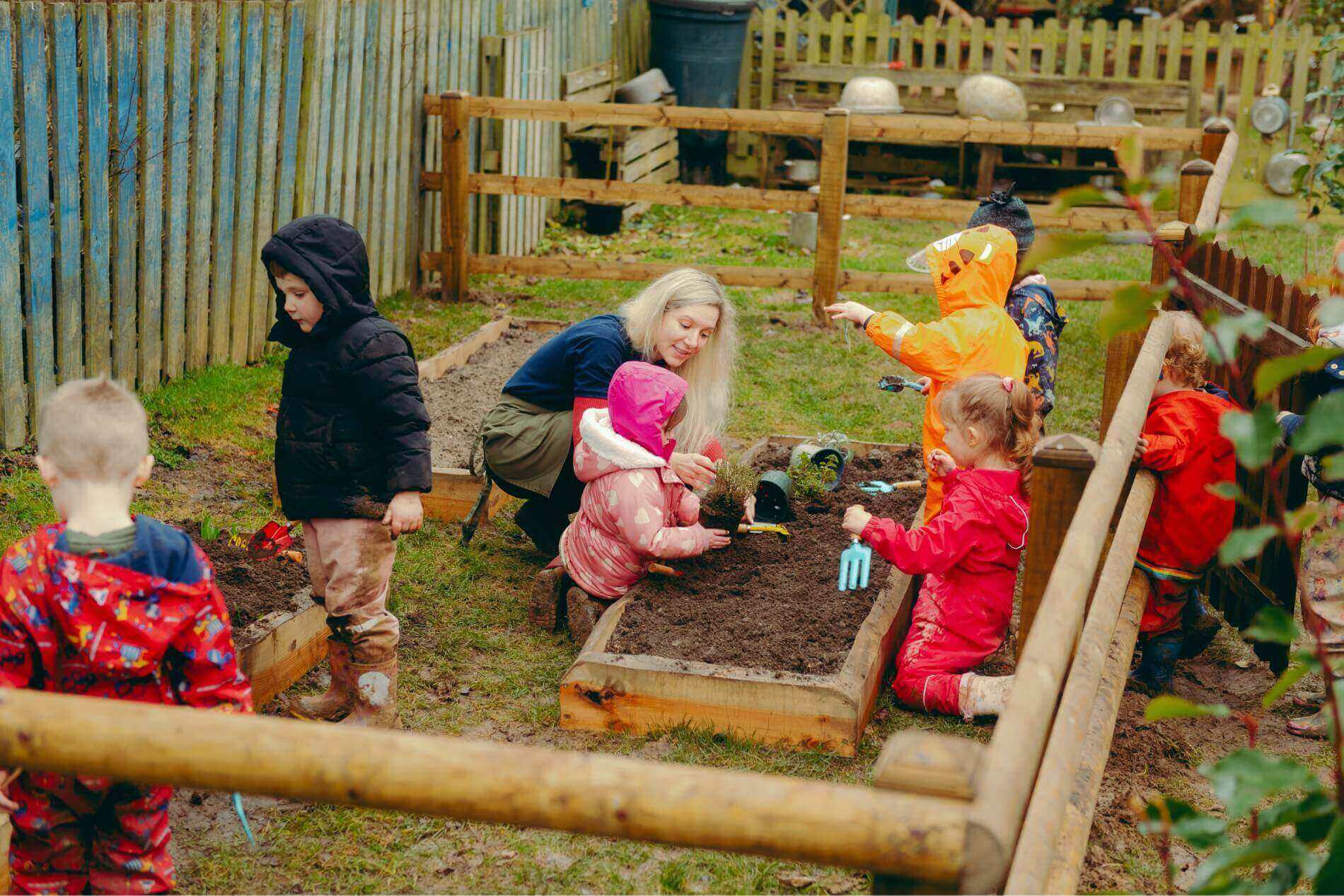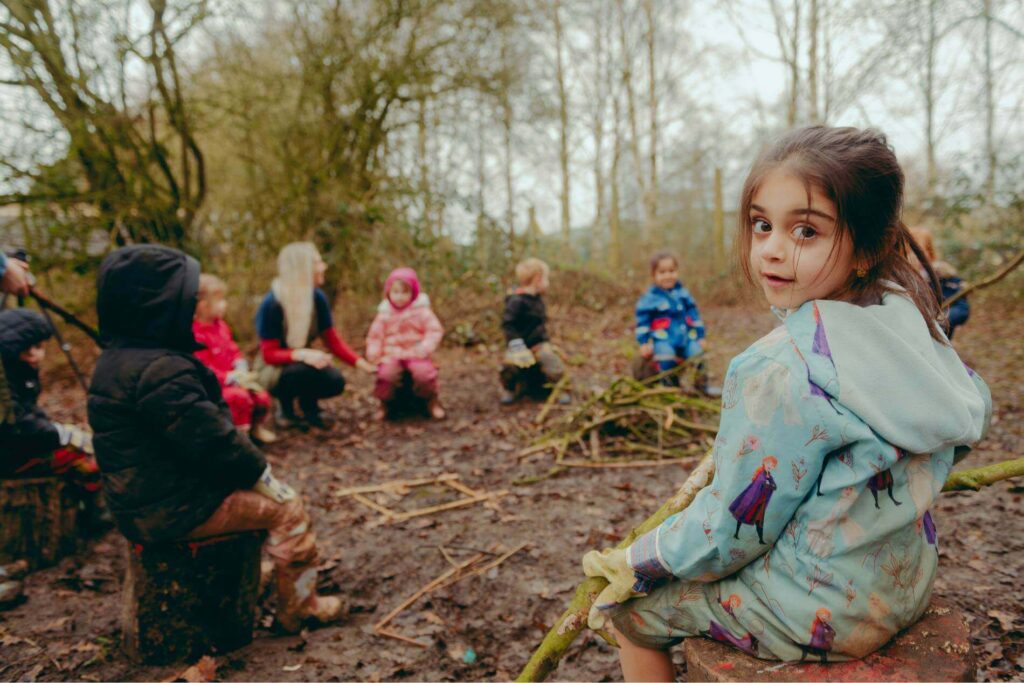Forest Schools do not strictly follow the National Curriculum, but they complement it by offering hands-on, outdoor learning experiences that support a child’s overall development. While traditional schools adhere to structured lessons based on government guidelines, Forest Schools focus on child-led exploration, problem-solving and skill-building in natural environments. This alternative approach provides children with valuable life skills, such as resilience, independence and teamwork, which align with key educational goals.
Many schools integrate Forest School sessions alongside traditional classroom learning, using outdoor activities to enhance subjects like science, literacy and maths. A study by the Forestry Commission found that 82% of teachers observed improved social skills in children who participated in Forest School programmes. These benefits highlight how outdoor learning can effectively complement standard education while providing unique advantages.

What Is The Forest School Approach?
The Forest School approach is an educational philosophy that prioritises outdoor, play-based learning in a woodland or natural setting. It encourages children to explore their surroundings, take measured risks and develop problem-solving skills through practical activities. Unlike traditional lessons, Forest Schools focus on experiential learning, where children build shelters, identify plants, use tools safely and observe wildlife.
This approach fosters confidence, creativity and resilience, giving children the freedom to learn at their own pace. Sessions are often guided by trained Forest School leaders who support children’s curiosity and encourage independent thinking. The goal is not only to teach practical skills but also to cultivate a deep connection with nature, which can positively impact a child’s emotional wellbeing and overall development.
How Does the National Curriculum Compare?
The National Curriculum in England provides a structured framework for subjects such as English, maths, science and history, ensuring consistency in education across schools. It is designed to equip children with academic knowledge and essential life skills, preparing them for further education and employment. Traditional schools follow a set timetable, with subjects taught primarily indoors through textbooks, worksheets and digital resources.
In contrast, Forest Schools embrace a flexible learning model where activities are adapted to the interests and needs of the children. While they do not replace the National Curriculum, they enhance it by providing real-world experiences that reinforce classroom learning. For example, measuring the height of trees can complement maths lessons, while observing seasonal changes supports science education.
Do Children in Forest Schools Learn Core Subjects?
Children attending Forest Schools engage in a wide range of learning experiences, but the way they learn core subjects differs from traditional methods. Instead of sitting at desks completing worksheets, children develop literacy skills through storytelling, discussion and nature-based writing activities. Maths concepts are explored practically, such as counting natural objects, estimating distances or learning about symmetry through leaves and flowers.
Science is naturally embedded in Forest School sessions, as children study ecosystems, weather patterns and wildlife behaviour. The hands-on nature of these activities deepens understanding and retention, often making learning more enjoyable and meaningful. Many educators believe that combining Forest School principles with conventional teaching methods creates a more balanced and engaging education.
Are Forest Schools Recognised by Ofsted?
Yes, many schools that incorporate Forest School principles are recognised and inspected by Ofsted. While Forest Schools themselves are not a separate educational institution, they operate within the framework of nurseries, primary schools and early years settings. Ofsted acknowledges the benefits of outdoor learning, particularly in supporting children’s physical and mental wellbeing.
Schools that run Forest School sessions are often praised for encouraging creativity, problem-solving and teamwork. While Ofsted does not assess Forest Schools as independent entities, the impact of outdoor learning on children’s development is widely recognised as a positive contribution to education.
Should More Nursery Schools Adopt the Forest School Approach?
With increasing awareness of the benefits of outdoor learning, many educators and parents believe that more schools should integrate Forest School principles into their curriculum. Spending time in nature has been linked to lower stress levels, improved concentration and better social skills in children.
At Jack & Jill’s Day Nursery, children benefit from both the advantages of a traditional nursery school, coupled with an enriching forest school experience. This balanced approach allows children to develop core academic skills while also fostering creativity, independence and a love for nature. By combining structured learning with outdoor exploration, Jack & Jill’s Nursery ensures that every child receives a well-rounded education that prepares them for the future.

Final Thoughts
Although Forest Schools do not follow the National Curriculum in a traditional sense, they play a valuable role in enhancing children’s education. Their emphasis on experiential learning, problem-solving and emotional development complements the structured lessons taught in schools. With increasing evidence supporting the benefits of outdoor learning, Forest School principles are becoming more widely adopted within mainstream education.
Integrating nature-based learning with the National Curriculum provides children with a richer and more holistic educational experience. The combination of academic learning and hands-on exploration can help children thrive in both their studies and personal growth.